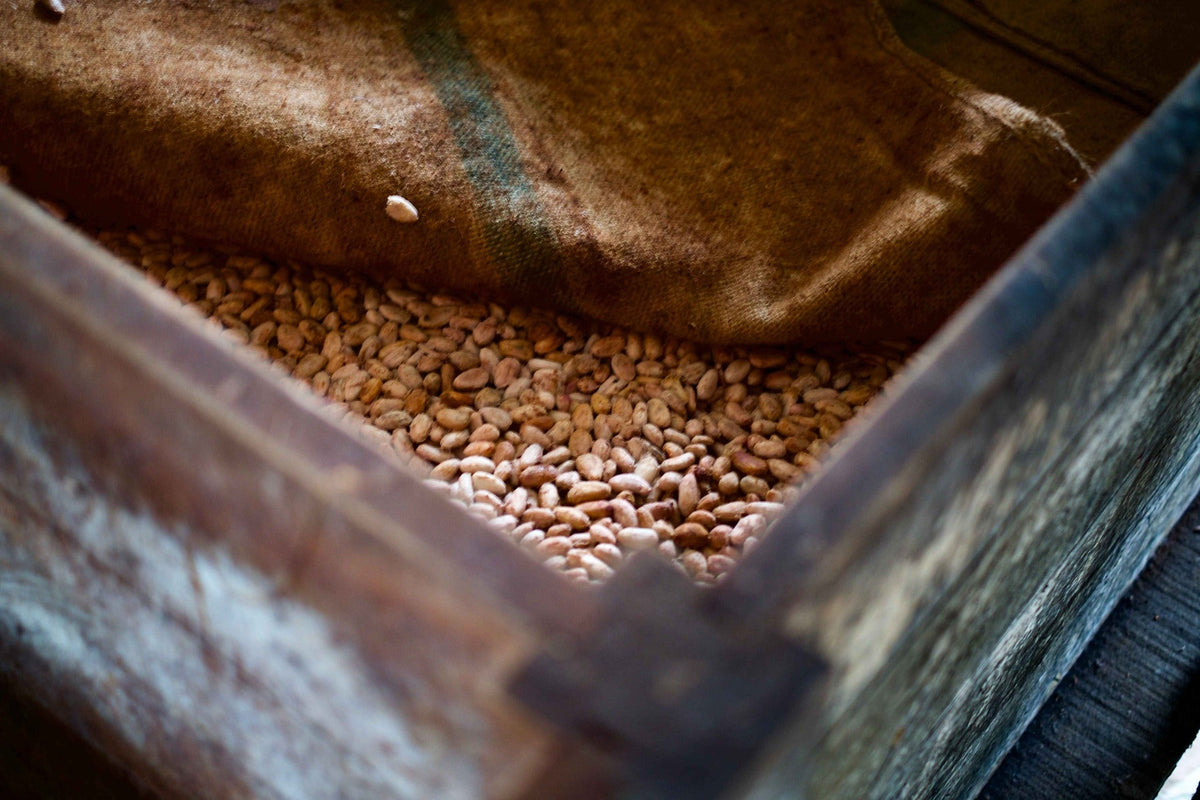
Is Dark Chocolate Actually Healthy?
|
|
Time to read 5 min
You have no items in your cart
|
|
Time to read 5 min
You've read the comments. Somebody will always add onto a conversation about favourite treats with a "Well, I like dark chocolate best because it's healthier for you" and everyone kind of looks around...
...really? Is it though?
Some dark chocolate ingredients are actually good for you, yes. Plus, quality organic dark chocolate has far fewer additives than supermarket budget brands. Like anything, it's best to eat in moderation.
I'm going to cut through the noise and give you the real deal on dark chocolate. We'll explore what makes chocolate truly healthy, bust some myths, and help you make choices that actually benefit your body. By the end of this, you'll know exactly which chocolate deserves a spot in your pantry and which ones are just expensive candy bars.
Dark chocolate isn't just a guilty pleasure—it's a legitimate superfood when you choose the right kind. The magic happens in the cacao content, where powerful compounds called flavonoids (still yes, that is a real word) work their magic on your cardiovascular system.
1. Heart Health Protection
Studies show that dark chocolate with 70% or higher cacao content can lower blood pressure and improve blood flow. The flavonoids in cacao help relax blood vessels, making your heart's job easier.
2. Brain Function Boost
Those same flavonoids that help your heart? They're crossing the blood-brain barrier and improving cognitive function. Regular dark chocolate consumption has been linked to better memory and focus.
3. Inflammation Fighter
Dark chocolate contains antioxidants that combat inflammation throughout your body. This isn't just feel-good science—it's measurable reduction in inflammatory markers.
4. Mood Enhancement
Beyond the obvious pleasure of eating chocolate, dark chocolate triggers the release of endorphins and contains compounds that can genuinely improve your mood.
Not all dark chocolate is created equal. The healthiest options share specific characteristics that separate them from pretenders.
Start with cacao content. Anything below 70% will have almost as much sugar as cacao and/or solids. The sweet spot for health benefits sits between 70-85% cacao. Higher percentages deliver more antioxidants but can be an acquired taste.
Flip that bar over. The healthiest dark chocolate has a short ingredient list: cacao beans, cacao butter, maybe some sugar, and vanilla. If you see a paragraph of ingredients, put it back.
Look for chocolate that's minimally processed. Terms like "raw cacao" or "stone-ground" indicate gentler processing that preserves more nutrients.
The internet loves its trending snacks, but when you compare nutritional profiles, dark chocolate often comes out ahead:
Quality dark chocolate provides antioxidants, minerals, and satisfaction with less sugar than most of these "health" foods.
Let's address the elephant in the room. Recent testing revealed concerning levels of heavy metals in some chocolate brands. This isn't fear-mongering—it's reality.
Cacao plants absorb heavy metals from soil and air. The concentration varies by growing region, processing methods, and brand quality controls.
The risk isn't high enough to avoid chocolate entirely, but it's worth being informed.
Most dark chocolate is naturally vegan, but check labels for milk powder or butter. Vegan chocolate has exploded in quality over recent years, offering rich flavors without animal products.
Sugar-free chocolate often uses alternatives like stevia, erythritol, or monk fruit. These can be genuinely healthy options, but watch for digestive issues if you're sensitive to sugar alcohols.
Dairy-free doesn't automatically mean healthy, but removing milk allows the cacao flavors to shine. Many people also find dairy-free chocolate easier to digest.
Dark chocolate with 85% or higher cacao content fits most keto diets. The fat content from cacao butter actually supports ketosis when consumed in moderation.
Here are our best-reviewed chocolate bars offering many of these dark chocolate health benefits:
These bars represent the perfect balance of health benefits, taste, and quality sourcing. Each one delivers the antioxidants and minerals you want without the junk you don't.
Disclaimer: So it goes without saying that we are not medical professionals or nutritionists. Please make sure you consult your caregivers before making any decisions about what you and your kids eat.
Small amounts of quality dark chocolate are fine for children over 2 years old. As usual, for the first time trying any brand-new foods - especially for children under 2 years old - start with very small portions and wait half an hour to watch for any adverse reactions. Consult your caregivers in the event symptoms began to show up.
A small serving (1-2 squares) of quality dark chocolate daily can be part of a healthy diet. The antioxidants provide cumulative benefits when consumed regularly.
It's amazing, 100% cacao contains zero added sugar but tastes intensely bitter. Most people find 85-90% cacao more accessible while still maximizing health benefits.
Dark chocolate contains small amounts of caffeine, so timing matters. However, it also contains magnesium and compounds that can promote relaxation when eaten earlier in the day.
Aim for 1-2 ounces (28-56 grams) of 70%+ dark chocolate daily. This provides health benefits without excessive calories or sugar.
Dark chocolate can absolutely be part of a healthy lifestyle—when you choose wisely. Focus on high cacao content, minimal ingredients, and quality sourcing. Avoid marketing tricks and ingredient lists that read like chemistry experiments.
The health benefits are real, but they're not magic. Dark chocolate works best as part of an overall healthy diet, not as a cure-all eaten by the pound.
Ready to experience the difference? Check out our curated selection of gourmet dark chocolates right here at our store. We ship anywhere in the US and Canada.


